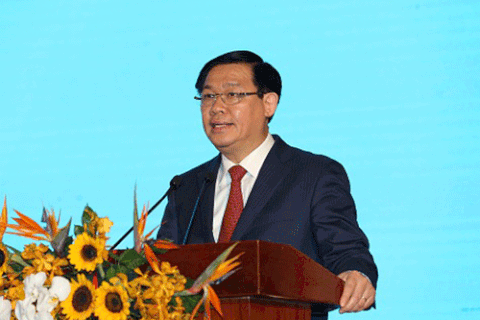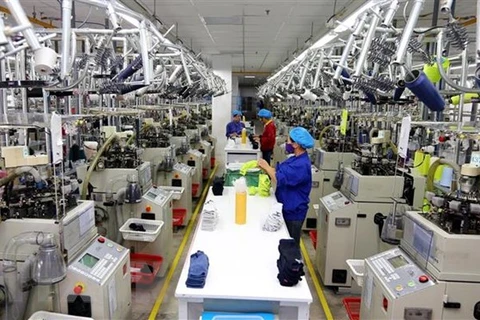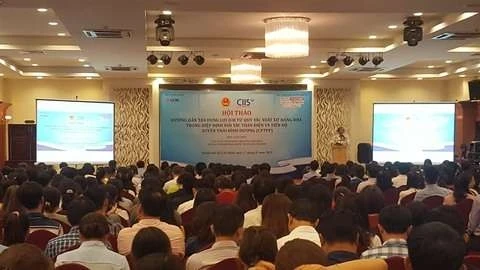 Deputy Prime Minister Vuong Dinh Hue (standing) speaks at the working session with the Ministry of Finance (Photo: VNA)
Deputy Prime Minister Vuong Dinh Hue (standing) speaks at the working session with the Ministry of Finance (Photo: VNA)Hanoi (VNA) – Preferential policies should be applied selectively, targeting FDI businesses with effective operation rather than the scale of investment, Deputy Prime Minister Vuong Dinh Hue said at a working session with the Ministry of Finance in Hanoi on February 28.
He said it is important to both attract investment and ensure revenues for the State budget, stressing that the goal in the time ahead is to promote FDI in an oriented and selective way.
Towards this goal, the Deputy PM said it is necessary to develop a mechanism to encourage FDI firms to increase their capital and reduce loans as well as build a national information data system to share information on registration, investment expansion, revenues, profits and production costs of FDI firms.
The building of a specialised system of tax inspection is also needed to handle price transfer more effectively, he added.
He suggested calling for investment according to sectors and fields and encouraging connectivity between domestic and foreign enterprises.
Deputy Minister of Finance Huynh Quang Hai reported that Vietnam is now home to 21,400 FDI firms, making up about 3 percent of the total businesses in the country.
In 2017, the FDI sector’s revenues increased by 28 percent compared to 2016.
The sector accounted for over 70 percent of the country’s export-import turnover and 15 percent of the State budget revenues.
However, the attraction of foreign investment still has shortcomings, with the flow of FDI mainly focusing on labour-intensive sectors and areas with favourable natural and social conditions.
He noted that more than 50 percent of FDI businesses have reported losses in the past three years, making the price transfer more complicated.
Meanwhile, the FDI sector’s contribution to the State budget is growing at a slower pace than the growth rates in pre-tax and post-tax profits (7 percent compared to 19.2 percent and 22 percent). The Finance Ministry attributed this to the various tax incentives granted to foreign investors and big projects in prioritised industries and fields. The FDI sector currently enjoys more incentives than other economic sectors.-VNA
VNA






















